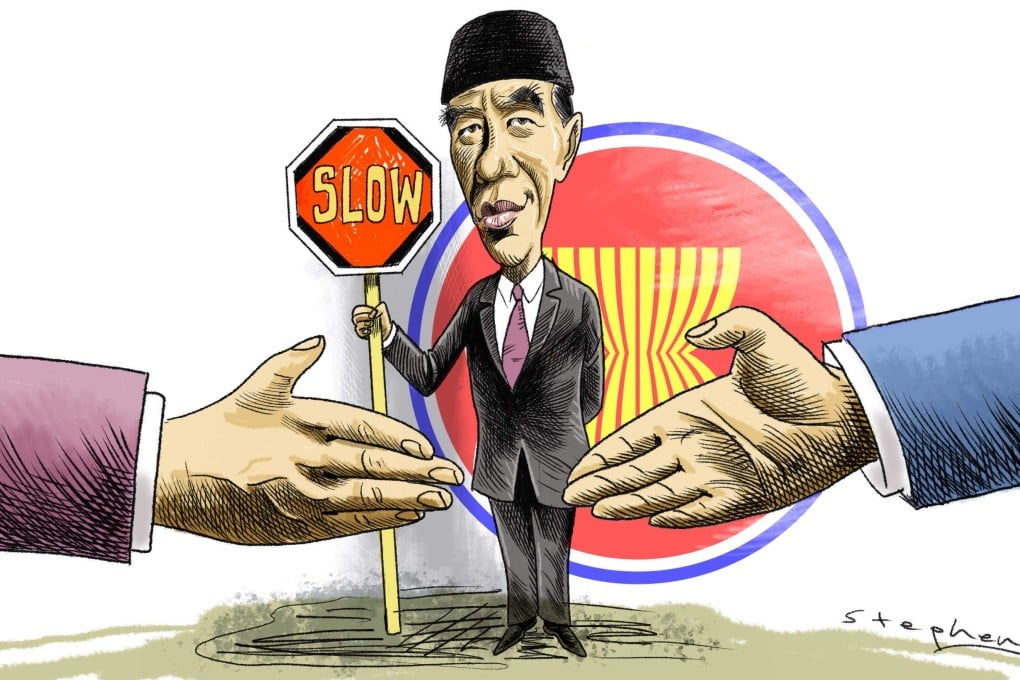Advertisement
Opinion | Indonesia’s Joko Widodo is showing Asean a way forward with steady, pragmatic diplomacy
- The Indonesian president seems determined to contain multiple crises in Southeast Asia as well as head off a clash among rival powers in the Indo-Pacific
- His cautious approach risks inaction that further deepens regional crises, but it also holds the promise of building a more capable, coherent Asean
Reading Time:4 minutes
Why you can trust SCMP
2

“All of us sitting in this room have an equal responsibility to create peace, stability and prosperity in the region. We all have the same responsibility to refrain from creating new conflicts, to refrain from creating new tensions, to refrain from creating new wars,” Indonesian President Joko Widodo said during the East Asia Summit in Jakarta.
Advertisement
With leaders from all of the major Indo-Pacific powers in attendance, Widodo reiterated how the Association of Southeast Asian Nations (Asean) “will continue to contribute to peace and stability” and called on his peers from across the region to “continue to make this region an epicentrum of growth”.
Far from offering empty talk, he seemed determined to contain multiple crises in the region as well as head off a clash among rival powers in the Indo-Pacific. Asean faces multiple challenges in its own neighbourhood, especially the rising tensions in the South China Sea and the festering civil war in Myanmar.
However, Asean fell far short of making a decisive move to address urgent crises in its own backyard. The lengthy chairman’s statement produced largely vague commitments without any concrete action. The upshot is growing doubts, especially among external powers, about the efficacy of Asean as a driver of regional integration.
Upon closer examination, however, it’s clear that Indonesia’s strategy is to focus on Asean’s economic strength, upgrade ties with like-minded middle powers and maintain balanced ties with competing superpowers. It seems determined to play the long game, giving Southeast Asian nations more opportunity to build their own capacity and gradually address challenges through collective action.
Advertisement
As this year’s rotational chair of Asean, Indonesia was doubly under pressure. To begin with, the country’s broadly successful chairing of the influential G20 summit last year raised expectations to new heights.

Advertisement
